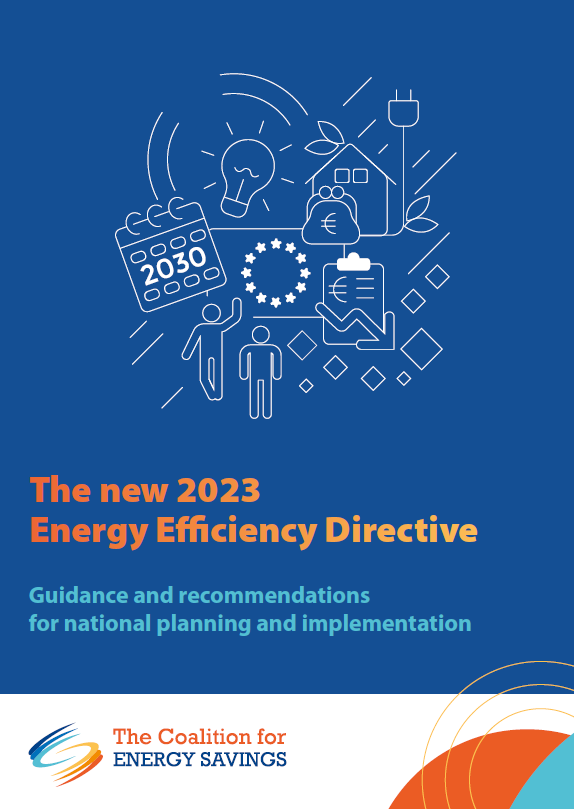The new 2023 Energy Efficiency Directive: Guidance for planning and implementation

With less than seven years to go to meet the 2030 EU energy efficiency target, the implementation of the EED recast must start with no delay. Despite the recast of the EED not yet published in the EU Official Journal, Member States must already integrate several new elements of the 2023 EED in the draft updates of the national energy and climate plans (NECPs), due by 30 June 2023.
The Coalition for Energy Savings’ new report aims to support stakeholders and national and local implementers to understand the new requirements of the EED for selected key articles, clarify what elements must be included in the NECP updates and present the Coalition’s recommendations for a strong and reliable implementation of the EED.
Erratum: As of June 30, 2023, an updated version of our report “The new Energy Efficiency Directive. Guidance and recommendations for national planning and implementation” has replaced the first version that was published on June 14, 2023. In the previous version, Figure 1 and Figure 2 had an inaccurate color coding.
RELATED ARTICLES
Planning for the 2023 EED: are EU countries up to the task? Updated analysis, April 2024
The update of the National Energy and Climate Plans (NECPs) is a pivotal first step to ensuring that the objectives of the Fit For 55 Package and REPowerEU are met and the revised legislation, including the 2023 Energy Efficiency Directive (EED), is correctly...
2040 Climate Target: No decarbonisation without energy savings.
On February 6, the European Commission published the communication on the 2040 climate target accompanied by an Impact Assessment (IA). It recommends that the EU cuts its greenhouse gas (GHG) emissions by a net 90% by 2040. The below briefing reviews how energy...
Planning for the 2023 EED: Are EU countries up to the task?
With only seven years to achieve the new 2030 EU energy efficiency target, national measures to implement the Energy Efficiency Directive (EED) must be put in place without delay to accelerate energy saving actions across sectors. While the 2023 EED has just entered...
